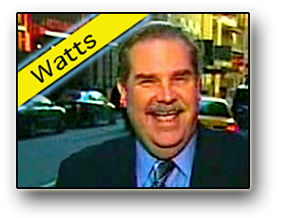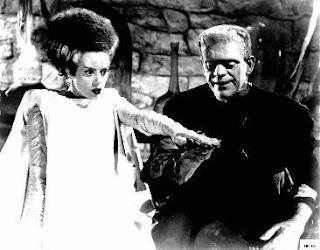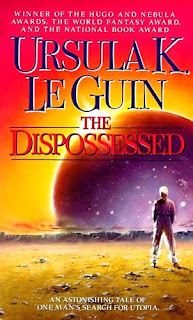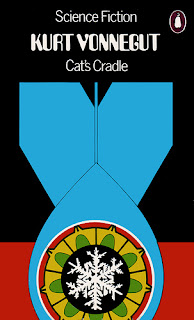
It's an eternal rule throughout history that there are the cool guys and the smart guys. The former get the fame, the glory and the girls, the later get the critical acclaim, but usually only after they're dead.
Take Elizabethan playwrights. Kit Marlow was the cool one, drinking, wenching and spying like the Renaissance James Bond he was, but the only play of his people know now is Moll Flanders, and that's only because of the bonking. However in the years since Marlow died his violent and mysterious death, the quiet chap from Warwickshire has overtaken him to become the best known writer of the era.

Then there are the Romantic Poets. Byron and Shelley were clearly the cool guys who got the girls, but it was Keats, scribbling away at home, whilst longing futilely for Fanny, who had the real talent.
I could go on, the Rolling Stones and the Beatles? Oasis and Blur? Bill Gates and Steve Jobs? Tony Blair and Gordon Brown? Okay, maybe not the last pair, but I'd be forgetting the date.
Today it is 100 years since Roald Amundsen reached the South Pole, and in so doing forever confined Captain Robert Falcon Scott to the category of Great British Looser, where he joins Eddie the Eagle, Fred Goodwin and the England World Cup 2018 team.
 Using skis, and techniques learnt from the Inuit, Amundsen dog sledded to the pole in double quick time, then sailed back, eating his dogs as he went. Scott meanwhile clanked along with all sorts of impedientia, including some particularly useless diesel tractors. No doubt about who was cool one.
Using skis, and techniques learnt from the Inuit, Amundsen dog sledded to the pole in double quick time, then sailed back, eating his dogs as he went. Scott meanwhile clanked along with all sorts of impedientia, including some particularly useless diesel tractors. No doubt about who was cool one.It's not as if he was a real chav - although he did ski there in Burberry overalls - but Amundsen was essentially a day tripper, who returned home with little more than a few picture postcards. Scott's party meanwhile were a fully tooled up scientific expedition. So in the scientific stakes it's Norway Nil Point.
Although Scott never made it back himself, a lot of his samples did, and they were, and still are, amazing discoveries.
Firstly there was the Edwardian version of Frozen Planet - the first movie film of Antarctic creatures ever recorded. Film of Weddell Seals and Killer Whales was truly ground breaking, - and none of it was shot in a Dutch Zoo.
Then there were the Emperor Penguin eggs he found. Nobody had grabbed an egg before, and whilst he didn't get them back to base himself, they were later recovered from the igloo where he left them. Skins collected by Scott have also been used as a control sample to measure the prevalence of DDT in the Antarctic.
Perhaps his most important find of all though was one of the fossils that he had with him when he died. This was of the fossil of a 250 million year old fern called Glossopteris. It is named after the Greek glossa meaning tongue, because of the shape of its leaves, not Glossop, meaning wettest town in England.
That a tropical fern should turn up in such a frozen wasteland was extremely interesting, and gave the scientists a hint that the wild theory of an Austrian ecologist might actually be true. Eduard Seuss had found fossil of Glossopteris in South America, Africa and India and so postulated that they had all once been a single supercontinent he named Gondwanaland. The discovery of the fern amongst the ice was the killer proof that his theory needed.
Dr Seuss also gave us the phrase 'the biosphere' by the way, and can claim to be the smart guy who ultimately got a lot less fame than far cooler fossil hunters Marsh and Cope, and has the additional burden of a less serious near-namesake.
Scott's expedition doctor also carried out research into the previously little known field of penguin sex. Unfortunately what he found, which included homosexuality and necrophilia, came as rather a shock to this Public School boy. 'There seems to be no crime too low for these penguins,' he wrote.
He made his notes in Greek so that the 'uneducated' could not accidentally read it, and all mention of sex was then removed from his subsequent book on penguins. The saucy bits were privately circulated in a privately publish pamphlet called The Sexual Habits of the Adélie Penguin. Funnily enough you can't buy it on Amazon.
Unlike Scott, the prudish doctor survived, but only by spending a winter in an ice cave with five other men eating seal blubber. We are assured they did not not engage in any penguin-like activity .
In the short term Scott's death was a good career move, making him more famous than his Norwegian rival, but being liked by the Establishment pretty much did for his reputation come the 1960s.
Dying perhaps isn't the great career move for explorers that it is for pop stars, and I doubt we would like Brian Cox any more if he'd frozen to death whilst making Wonders of the Universe. But whilst poor old Scott may not get the Boy Scout badge for planning expeditions, we should give him some credit for science he brought back.
So lets here it for old Scotty. He may not be cool, but he brought back the goods.














































